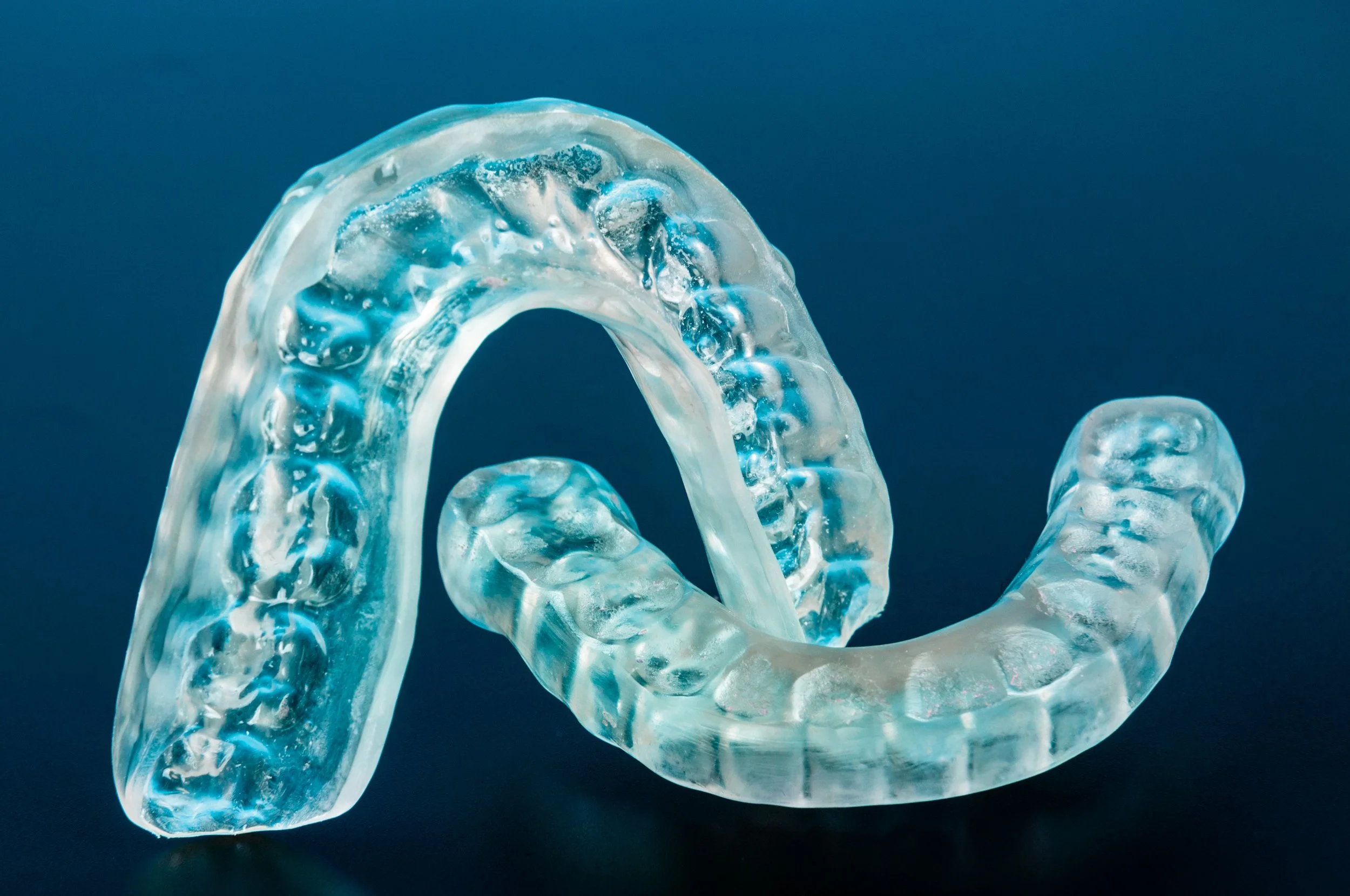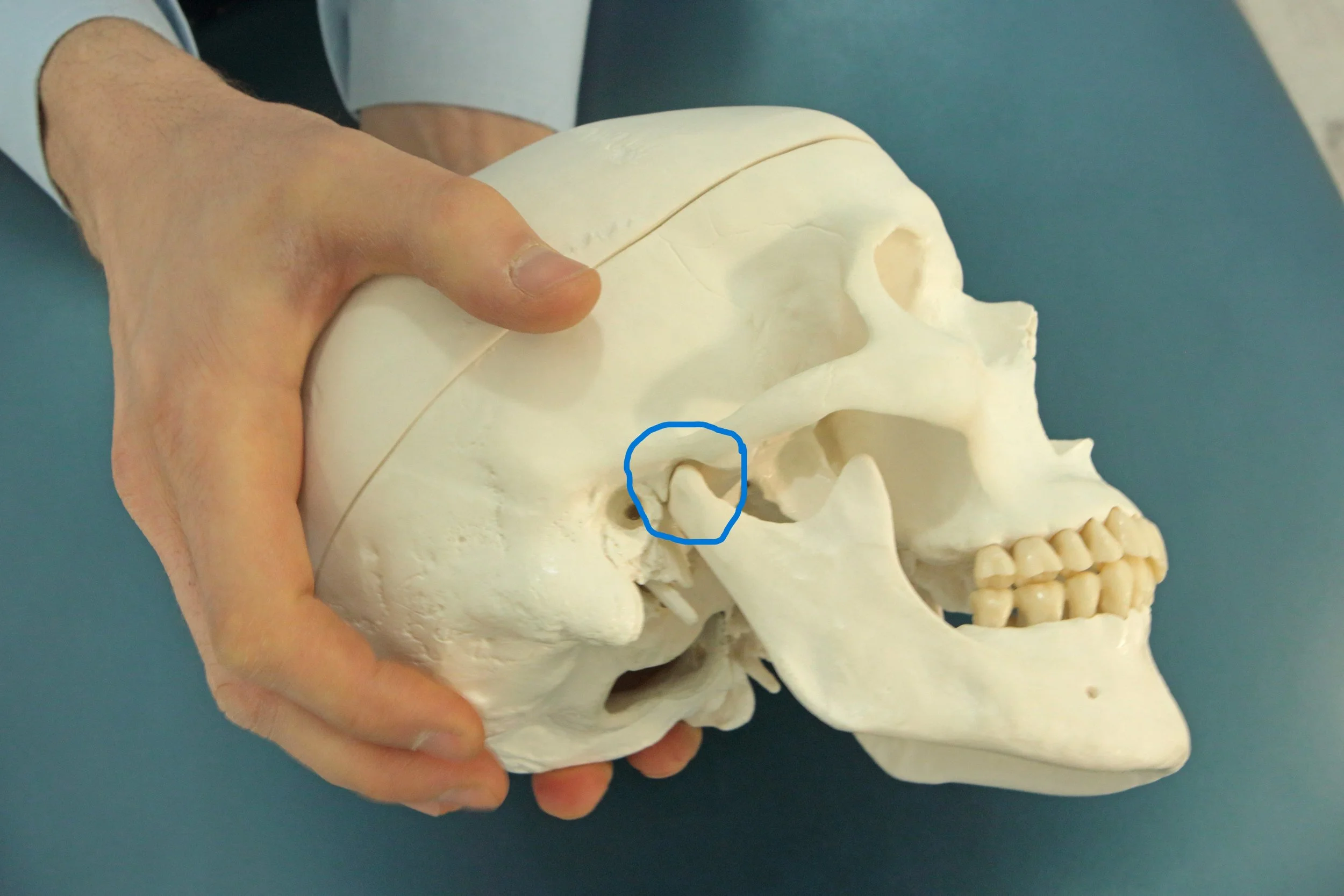Are All Mouthguards the Same?
Everyone seems to have a mouthguard or night guard these days. Some are custom made – and expensive - while others are over the counter and require do-it-yourself expertise. Which one is right for you? And why do you even need a mouthguard?
As ubiquitous as they appear, mouthguards serve very different purposes. Depending on its function, a store-bought mouthguard may be adequate. Or you may need to see a dentist with specialized training to make you a specific type of mouthguard. Let’s take a closer look.
Protecting teeth from breakage
A sports guard is used in contact sports such as basketball and football to protect teeth from damage. (Picture the mouthguard dangling from the mouths of NBA players during time-outs.) They are routinely used in youth sports but should be expanded to include non-contact activities such as skateboarding where falling is likely. A dental injury requiring extensive treatment will need to be maintained for life.
Because children’s jaws are growing and their teeth are constantly changing, an over-the-counter sports guard is sufficient. Some are ready to use, whereas others need to be heated and modified individually. Most sports guards are made of a soft, pliable material. With the right equipment, your dentist can easily make a custom sports guard in the office, often in a variety of colors.
Protecting
teeth
from
wear
A very common mouthguard is one used during sleep for nighttime grinding or clenching. Grinding, or bruxism, is the gnashing back and forth of upper and lower teeth, resulting in uniform wear. Clenching is the sustained contraction of facial muscles which causes undue pressure on the teeth as they’re being squeezed together.
Despite many theories, a direct cause for grinding or clenching has not been proven. Treatment then involves managing the damage from such behavior.
A custom-made, hard acrylic nightguard is recommended. A softer material usually causes the clencher to want to clench more, much like having gum in one’s mouth. Your dentist should be able to provide this service. Be sure that the nightguard is checked and adjusted prior to use and checked periodically for any necessary adjustments.
Protecting expensive dental work
Imagine you just spent $10,000 fixing your mouth. You’d probably want to protect your investment, regardless of whether you think you grind or clench your teeth, as this can be challenging to determine. Occasionally those habits are episodic, meaning you may not grind or clench all the time.
A custom-made mouthguard reasonably insures that your dental work won’t be damaged. Again, your dentist can provide this treatment.
Acting as a retainer
If either grinding or clenching is suspected, a mouthguard can prevent tooth damage – and act to keep teeth from moving. Alternatively, there are hybrid appliances that are a combination retainer-mouthguard. These are all custom made by your general dentist or orthodontist.
Treating temporomandibular joint disorder (TMD)
There are two joints on either side of the lower jaw that facilitate opening and closing the mouth. When patients experience pain in these areas, it can impact eating, speaking, and even daily normal functioning.
The causes of TMD are multi-faceted and not fully understood. As such, mouthguards are frequently used to treat symptoms like pain. They stretch and relax the masseter muscles used in chewing and break the cycle of continuous muscle activity.
These mouthguards should always be custom made and care should be provided by a dentist who has experience and training in treating TMD. Look for a specialist in orofacial pain.
Treating sleep apnea
Sleep apnea occurs during sleep when the airway constricts, reducing the amount of available oxygen to dangerously low levels. Often the patient wakes up when this happens, leading to fragmented sleep and daytime sleepiness. In addition, there are a host of health risks associated with sleep apnea, including stroke and heart attacks.
Opening the airway is the objective of treatment. A sleep apnea device is essentially two connected mouthguards, fitting the upper and lower jaw that repositions the jaw and allows more air to enter. These should definitely be custom made.
As there is no official specialty, any dentist can treat sleep apnea. However, find someone who has specific training, experience, and expertise to manage your sleep apnea.






